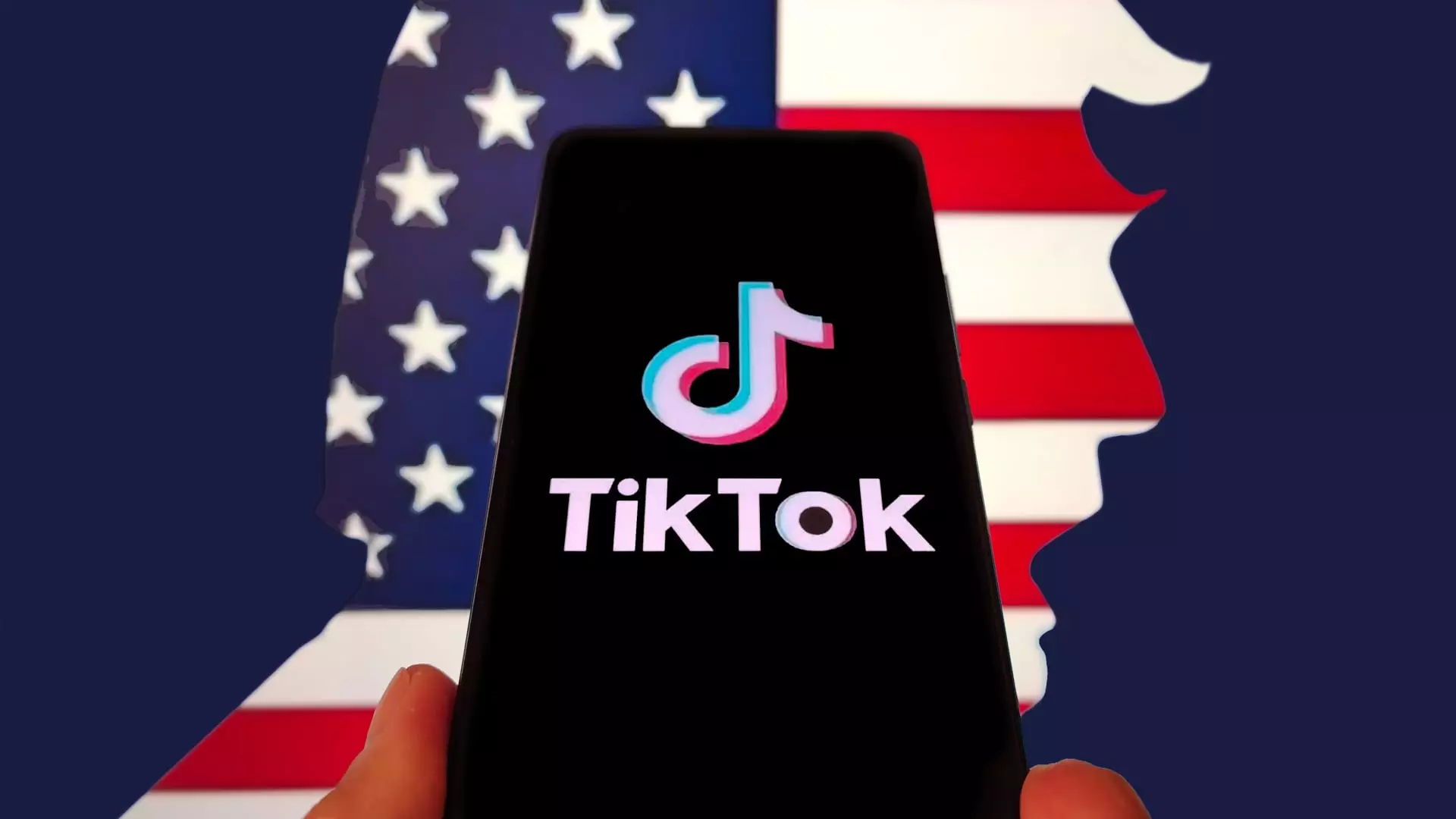The recent announcement about the American-led governance structure for TikTok should be met with a healthy dose of skepticism. While it’s easy to rally behind the notion of “America first,” the truth is that this deal appears to be more of a symbolic gesture than a meaningful safeguard. The White House’s portrayal of the agreement as a victory for national security feels superficial when scrutinized closely. With six out of seven board seats held by Americans, one might assume that real control has been established; however, the devil is in the details—or rather, in the ambiguities that remain unaddressed.
American control over the platform’s algorithm, which determines the content users see, is hailed as a major achievement. But what guarantees are there that this control will be effective or free from Chinese influence? In an era where technology is fluid and opaque, promises about controlling “the algorithm” can easily be hollow. Without strict oversight, opaque corporate practices and behind-the-scenes lobbying could erode the intentions of the agreement, ultimately undermining U.S. sovereignty and failing to address the real threats posed by foreign influence.
Corporate Power as a Superficial Cure
The reliance on Oracle—Larry Ellison’s tech giant—to oversee data and privacy issues is a double-edged sword. On one side, it appears to be a tangible step toward protecting American user data. Yet, this feels more like a strategic distraction than a meaningful safeguard. Oracle, like many big tech firms, operates in a complex web of corporate interests that stretch beyond the U.S. borders. Entrusting critical control to a foreign-connected entity risks perpetuating the very vulnerabilities the deal claims to rectify.
Furthermore, focusing on corporate gatekeepers often sidesteps the more fundamental issues about transparency and accountability. Can we truly rely on a private company’s assurances when their profits, market share, and global interests are intertwined with ongoing political and economic pressures? This arrangement feels less like a triumph of national security and more like an attempt to kick the can down the road while gaslighting the public into believing the risks are mitigated.
National Security or Political Theater?
The Biden and Trump administrations seem to be engaging in a game of political theatrics, brandishing their “victory” while sidestepping hard questions about genuine sovereignty. Trump’s fixation on TikTok, including his previous threats to ban the platform and his claims of using it to secure votes, reveal a deeper political calculus. Once seen as a tool to appeal to younger voters, TikTok has become a symbol in the ongoing debate about U.S.-China relations and digital sovereignty.
The recent deal underscores how politics often distort security concerns. Talking about Chinese manipulation of TikTok’s algorithm plays into fears that, while exaggerated, serve political narratives more than actual threats. It’s convenient to declare the platform “saved” by American intervention, but does this really curb Chinese influence? Or does it merely pacify public concern while maintaining the status quo—a fragile balance that allows both governments to posture while complex geopolitical realities persist?
Underlying Issues: Data Privacy and Democratic Values
Looming over this entire narrative is the unresolved issue of data privacy and democratic integrity. The push to control TikTok is motivated primarily by fears of China exploiting user information, but the proposed solution—restricting access and overseeing algorithms—hardly addresses the core problem of unregulated data collection. American platforms have historically faced similar issues, yet little has changed; vulnerabilities persist across social media.
This arrangement risks further entrenching the notion that technological governance can be managed solely through corporate or governmental fiat, rather than through transparent and democratic oversight. The myopic focus on control grants too much power to technocratic elites and corporate interests, often at the expense of ordinary users’ rights and freedoms. As such, it raises fundamental questions about how societies protect themselves in an era of digital omnipresence.
The Realpolitik of Control and Influence
At its core, the TikTok deal reveals the limits of liberal oversight and the contradictions embedded in center-left policy approaches. While claiming the mantle of safeguarding democracy and security, this arrangement essentially grants significant influence to corporate and political insiders under the guise of national interest. It exposes how fragile the notion of “control” truly is in a globalized digital landscape.
Rather than promoting genuine sovereignty and accountability, the deal demonstrates how geopolitical strategy often devolves into a contest of optics—not substance. The U.S. promises to dominate the platform’s governance, but in reality, it depends on a delicate framework that could easily collapse under economic or diplomatic pressure. This fragile balancing act ultimately leaves citizens exposed to the same risks, only with a new veneer of legitimacy.
In the end, the TikTok saga exemplifies how political leadership under the guise of national security often veers into superficial nationalism. Instead of tackling the root issues—transparency, privacy, and democratic oversight—the focus remains on controlling symbols and appearances. This not only undermines genuine progress but also erodes the public’s trust in institutions that continually prioritize political expedience over sustainability.

